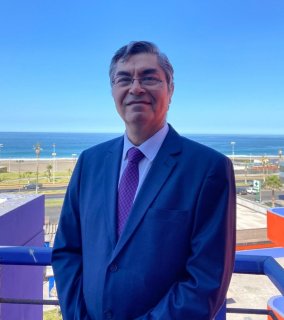Dean
 My name is Miguel Segovia Rivera, born in Santiago de Chile on April the 20th, 1968.
My name is Miguel Segovia Rivera, born in Santiago de Chile on April the 20th, 1968.
I’m a graduated Civil Biochemist Engineer and I hold a Bachelor’s Degree in Engineering Sciences from the Pontificia Universidad Católica de Valparaíso. Subsequently, I obtained a Master’s Degree in Environment with a Minor in Environment Management and Organization from University of Santiago de Chile, and currently Lead Auditor in Integrated Systems of Management form USACH and TÜV Rheinland. In addition to that I have completed a Diploma in Evaluation and Mitigation of Environmental Impacts from the Universidad Tecnológica Metropolitana and recently, the Babson College Symposium for Entrepreneurship Educators.
I have developed professionally in multiple areas, both private and public, acquiring wide experience as employee and freelancer in the training and environmental fields.
I have participated as a member in the Chile Emprende program from the Tarapaca Region, cultivating the practice and encouraging entrepreneurship with local business of Tarapaca. In addition to that, I have worked for the Northern Division of CONADI (National Corporation of Indigenous Development), contributing with the implementation of the Environmental Unit and Program Coordination of the institution.
On the disciplinary field, I have worked in the areas of Eco-design, Eco-innovation and Industrial Ecology, devoting myself and committing to the academic world. In this field, I am proud of accomplishing along with the members of our faculty, innovative initiatives such as the Willkapalla Project in 2017, the formulation of the proposal of the Circular Economy Innovation Center for the Northern Macro Area in the Tarapaca Region, awarded in 2019 in consortium with important institutions of our country and recently, the awarding of the Nueva Ingeniería 2030 Regiones instrument of CORFO (Production Development Corporation).
The Faculty of Architecture and Engineering (FIA), even though has only existed for 9 years, today has the opportunity to take a major qualitative and quantitative step that will allow us to strengthen our role as the regional engine for the develop of technology, innovation, entrepreneurships and the education of new engineering and architecture professionals that are orientated to face the territorial challenges. This implies a transformation in our actions and, especially, in the way that we make our university work. The FIA UNAP Nueva Ingeniería 2030 Program will allow us to materialize that change and invite us to rethink, redo and create new things.
Finally, I want to mention that the regional commitment of our faculty is driven and motivated to carry out the transformation process in engineering sciences and, in this way, achieve to become a faculty under World Wide Standards, where its foundations lay in sustainable develop, digital transformation, natural resources scarcity, diversification of economic activities, among others. This are the scenarios and paradigms that we are facing out, but at the same time, are a major opportunity for the evolution of our region if we are prepared. Is for this motive that today we think and believe that we can impulse our faculty to be a beacon that lights up the social and technological develop in the region for those who venture to design the future from the engineering and architectural perspective.


